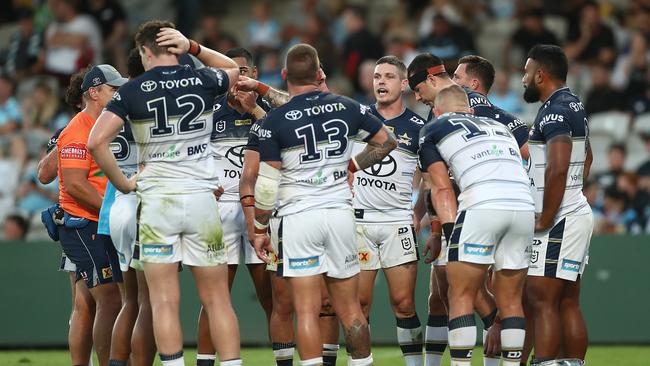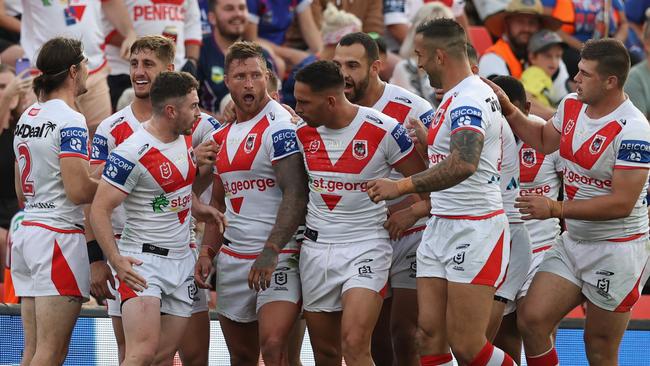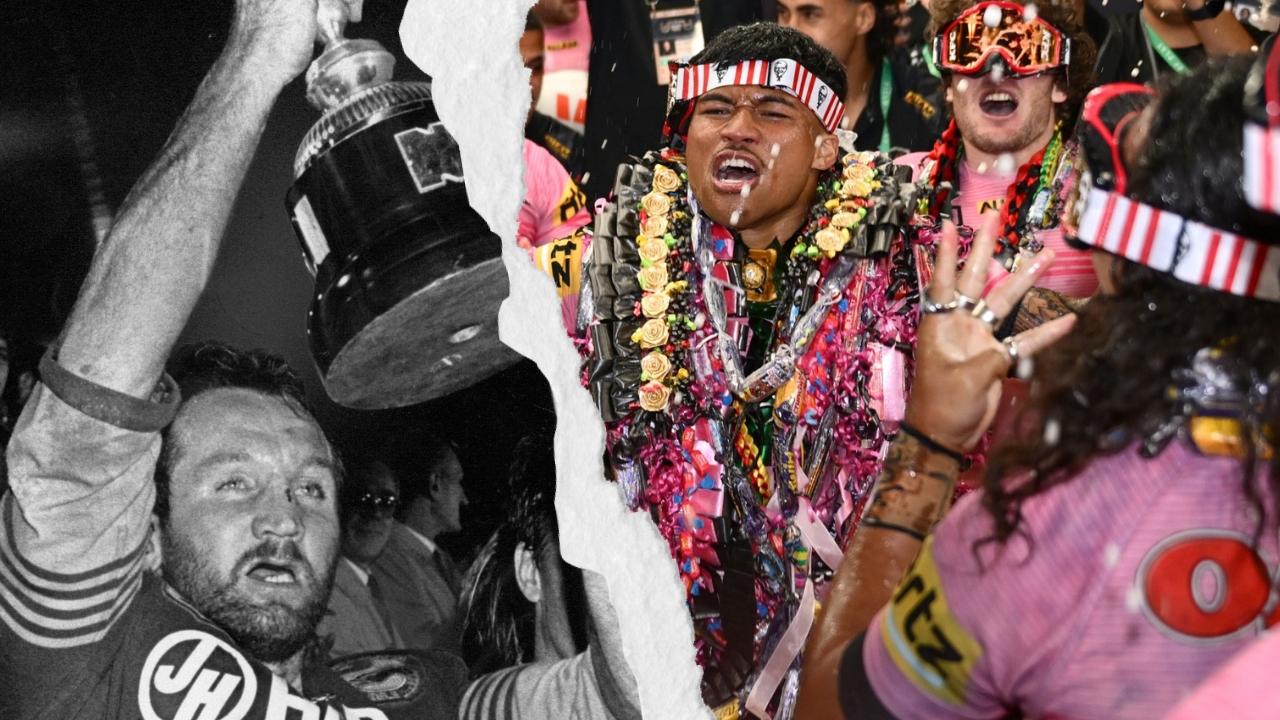NRL 2021: How a national draft would hurt smart clubs
Many are urging the NRL to introduce a national draft because the salary cap is not levelling out the talent across the sport. Paul Kent looks at who wins and who loses.

NRL
Don't miss out on the headlines from NRL. Followed categories will be added to My News.
The St George Illawarra Dragons are the great lie of the competition.
A month ago, before a game had even been played, they firmed for the wooden spoon and their coach Anthony Griffin confirmed what everybody thought when, to improve their struggling roster, he signed the ageing Andrew McCullough, the broken down Jack Bird and Daniel Alvaro.
This was the first time in recent history that a team attempted to improve its roster by taking a bomb to it.
Against this the Dragons lost Tyson Frizell, an international. They lost Korbin Sims and young talents like Euan Aitken and Jason Saab, and all before two-time player of the year Cameron McInnes went down with a season-ending injury before the competition had started, and just weeks after announcing he had signed with Cronulla for next year.
Dragons fans could not find their local bar quick enough. They were depressed. Clearly this Griffin bloke did not know what he was doing.
But “Hook” Griffin understood what it took to put his ego in his back pocket and do what needed to be done.
Watch The 2021 NRL Telstra Premiership Live & On-Demand with No Ad-Breaks During Play. New to Kayo? Try 14-Days Free Now >

As the argument about the growing gap between the haves and the have nots escalates this season, which many believe is because of the rules introduced to quicken the game, Griffin is showing that good coaching can overcome all the disadvantages the bottom clubs face.
And this as some are urging to introduce a national draft to help struggling clubs remain competitive because the salary cap is not levelling out the talent across the NRL. But a draft will not safeguard a club against bad decisions.
As the Broncos struggle to settle on a half this season, swapping between Brodie Croft and Tom Dearden, here comes Sam Walker, who was first contracted to the Broncos at the stately age of 12, to star for the Sydney Roosters on Sunday night.
The Broncos invested in him for years and then blew it when it mattered.
In recent years the Cowboys have let Kalyn Ponga, Viliame Kikau and Brandon Smith leave their club to focus on signing other players whose performances do not come anywhere near that of those three.
Against this, the two most successful clubs in the NRL era are Melbourne and Sydney Roosters. They have small junior numbers, giving them no choice but to be recruitment clubs.
That might be argument enough against a draft. Their success comes through smart market management, adapting as needed.

A draft would slow the ability of the smart clubs to adjust on the run.
It would limit teams to shaping their roster to certain points during the year when the draft is on or a trade window opened.
Now the market has never been more free.
Teams which find their roster in trouble can adjust almost immediately.
For this season, the registration deadline was extended to August 1, just a month before the finals, while the NRL has also shown an appetite in recent seasons to allow clubs to swap players.
It makes for a robust player market in late July, but still the signs are that it is the smart teams which will do it better than the others.
Griffin’s old-fashioned approach is his strength.
He is not trying to impress anybody, club officials or star players, with his footy knowledge. He knows what he knows and he knows what works.
Too many in this game want to show everybody how smart they are.
Griffin put it all away at the Dragons and concentrated on simple football fundamentals.
It began with the dummy-half pass. Not just from the hooker McCullough, but everybody because there comes a point in every game when a player could find himself at the ruck.
“It’s the most important pass in the game,” he likes to say. “If you don’t get that right, nobody else can run fast.”

A good dummy-half pass allows the receiver to run through the ball at speed.
It needs to be caught in the right place at the right height, small details that make all the difference.
There the runner finds momentum that sets up the next pass or the next play and suddenly your set is alive.
Not every coach has the strength to walk into a new playing group at NRL level and teach them fundamentals they learned as teenagers, telling them this will win football games.
For sure, the Dragons have not really beaten anybody yet worth bragging about.
They lost to Cronulla in the first round and then beat North Queensland, Manly and a busted Newcastle.
But most fans were tipping more from the Cowboys and Sea Eagles than they were from the Dragons this season and the Knights were a top-eight side last year.
That’s more good new for the Dragons.
More Coverage
Originally published as NRL 2021: How a national draft would hurt smart clubs





